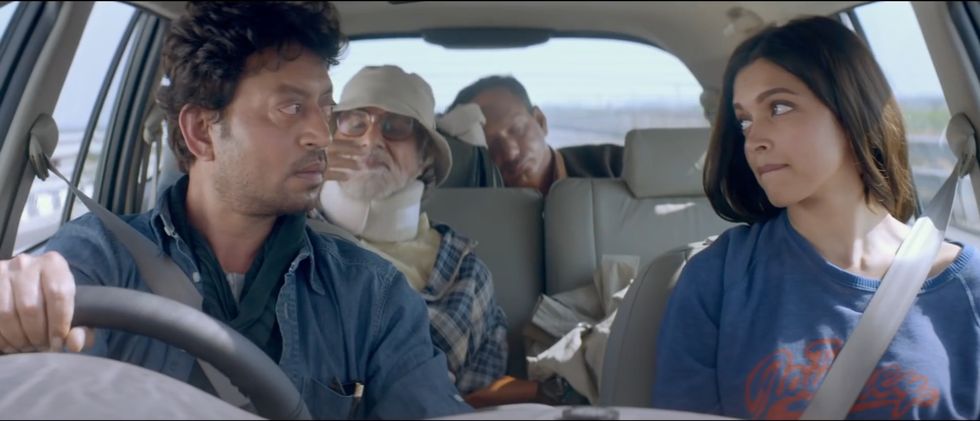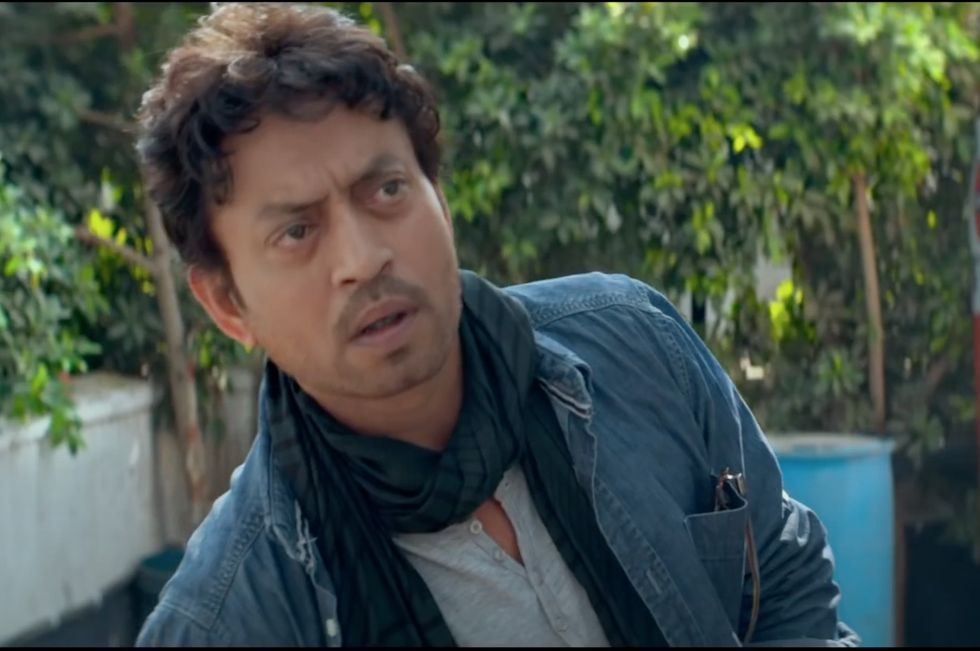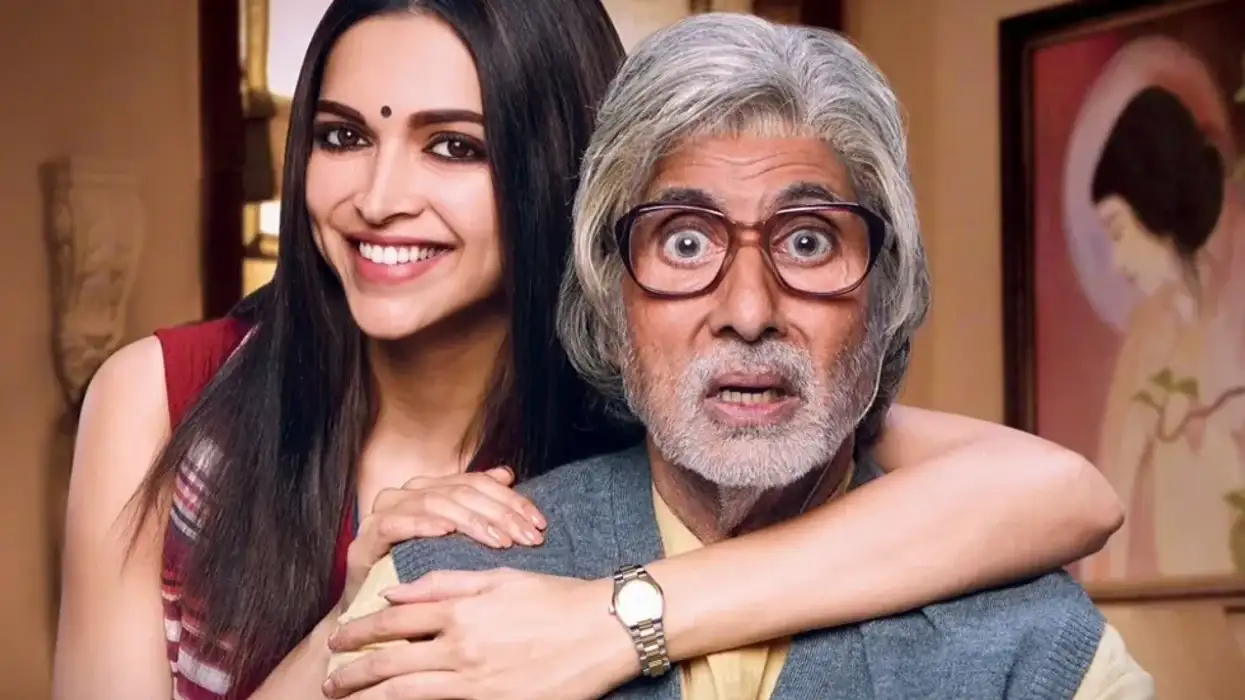Superb cinematic gem Piku struck a deep emotional chord with audiences when it was released on May 8, 2015.
A refreshing departure from formuladriven commercial Bollywood cinema, it defied conventional storytelling by blending diverse themes, including family, ageing and responsibility.
The Shoojit Sircar-directed film, starring Amitabh Bachchan, Deepika Padukone and Irrfan Khan, connected with all age groups through its cool combination of comedy and melodrama. The multiaward-winning story of a strong-minded daughter taking a road trip with her cranky father and a sarcastic taxi driver completes a decade this week – and is being rereleased in cinemas across India.

Eastern Eye marks the occasion by revealing 10 reasons why it is a modern-day masterpiece.
Story: Writer Juhi Chaturvedi’s relatable story found real magic in the everyday struggles of a middle-class family. Piku did not need a villain, forced conflict or elaborate twists. The authentic interactions, engaging characters and universal themes enabled it to resonate deeply. Whether it was the frustrations of younger protagonists or the eccentricities of old age, there was something for everyone.
Screenplay: A good story is often let down by a weak screenplay, but not here. Juhi Chaturvedi brought her beautiful idea to life with a sharp, emotionally intelligent script filled with memorable dialogues, strong characterisation and well-structured scenes. It is no surprise she won all the major writing honours, including Filmfare, IIFA, National and Screen awards.

Performances: A character-driven story demanded a strong lead cast, and Piku delivered just that. Amitabh Bachchan, Deepika Padukone and Irrfan Khan fully immersed themselves in their roles. The versatile talents played off each other brilliantly, creating memorable moments throughout the film. Even the supporting cast delivered solid performances that added texture to the narrative.
Direction: Strong acting, great writing and interesting settings all came together under Shoojit Sircar’s deft direction. He transformed a simple premise into a deeply emotional cinematic experience. Avoiding heavy-handedness, he let the characters drive the story, focusing on natural interactions instead of dramatic set pieces. His approach allowed audiences to laugh, cry and reflect – often all at once.
Deepika Padukone: The superstar actress arguably delivered the best performance of her career in this modestly budgeted film, despite having starred in far bigger productions. She brought remarkable range to the challenging title role, offering a deeply relatable portrayal of a daughter caught between duty and personal aspiration. Her exhaustion, love and sacrifice struck a chord with audiences who had been in her shoes. She deservedly won a host of best actress awards.
Amitabh Bachchan: Bollywood’s greatest star has delivered countless unforgettable performances, and Piku ranks among his finest. Whether it was his appearance, accent or mannerisms, he completely transformed into the hypochondriac father obsessed with digestive health. The multi-layered role, filled with contradiction, humour and empathy, earned him widespread acclaim and all the top acting honours.
Acclaim: One of the clearest signs of Piku’s greatness is the critical acclaim and awards it received. In addition to individual honours for direction, writing and performances, the film itself received multiple best film awards and nominations. Critics praised it as charming, progressive, unpredictable and realistic. It proved that content-driven cinema could thrive in mainstream Bollywood. With the industry currently struggling, it is crying out for another Piku.
Romance: Amid its fabulous father–daughter narrative, the film featured a subtle romantic thread. The understated chemistry between Piku and her driver Rana (played by Irrfan Khan) felt refreshing in an industry known for grand, over-the-top romances. Their exchanges – laced with wit, sarcasm and growing mutual respect – offered a beautifully written and believable love story.
Locations: A road trip involving a strong-willed woman, her ageing father and a nononsense taxi driver called for evocative locations – and the film delivered. From intimate indoor scenes to striking outdoor backdrops, the film maintained authenticity from start to finish. The journey’s various pit stops added emotional depth and gave the story a tangible sense of movement and discovery.
Music: The soundtrack – including its background score – may not receive enough credit when discussing this landmark film. The understated compositions perfectly complemented the story’s contemplative tone. Its heartfelt and timeless song, Bezubaan, remains beloved a decade later. The music elevated the film’s emotional resonance without ever overpowering the narrative.




